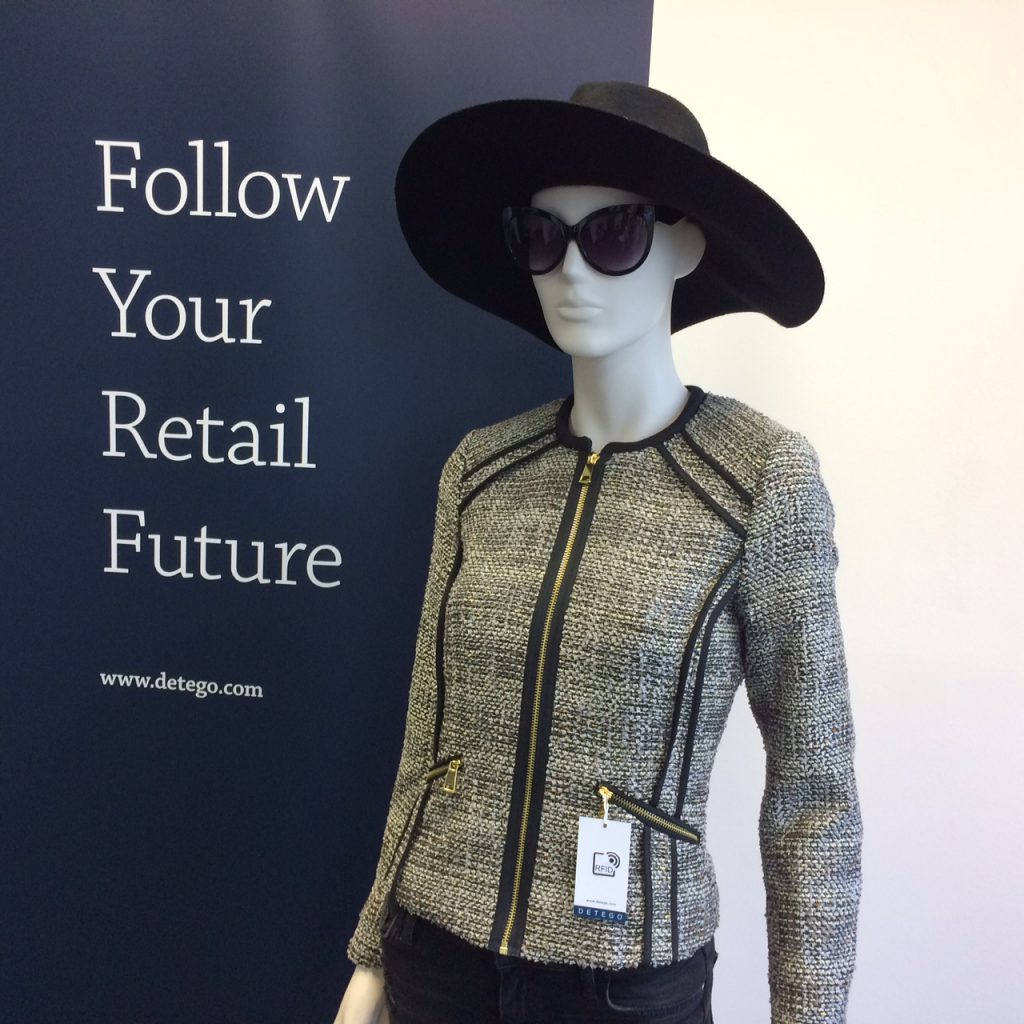RFID Specialist Connects One Billion Clothing Items
22nd November 2016

Retail software specialist Detego says it has now digitally connected over a billion items of clothing, in a bid to help several European retailers gain actionable insights into product ranges and customer behaviour. Both the UK and Germany are leading the field in adopting RFID (radio-frequency identity) technology, accounting for around seventy percent of the European fashion business. However, only a small percentage of the total fashion retail market has yet to fully embrace RFID and connected smart devices, say experts.
According to research by IDTechEx, RFID in retail is seeing rapid growth. IDTechEx estimates the total value of the RFID market to be worth over $10 billion and expects it to rise to $18.6 billion over the next decade. This is largely attributed to the falling cost of tags – today just a few pence each, depending on volumes – not to mention the advantages offered by automated tracking and real-time visibility of every article in stock.
“The cost of RFID tags has fallen so much over the last decade that most fashion retailers are now seeing the sense of item-level visibility and the more detailed analytics it supports,” says Uwe Hennig, chief executive at Detego. “Connected technologies enable fashion retailers to automate processes and reduce administrative duties, freeing up staff to focus on customer service. Combined with near 100% inventory accuracy, this leads to an enhanced shopping experience and higher sales conversion rates.”
Hennig says that with so many consumers now expecting higher levels of service, such as ‘click and collect’, retailers are coping by sending more inventory to stores and over-compensating: “This is a bad idea. Too much stock always leads to excessive discounting and lower margins.”
Detego is currently rolling out its software across 900 stores for a global sports brand, at a rate of about twenty stores a week, to improve the in-store experience for consumers and to support the brand´s omni-channel strategies. The retailer is gradually adding RFID tags to every article of clothing and footwear so that it can manage all 80 million items in real time. Using Detego’s software, it will even be able to measure the time it takes to replenish shelves. This will mean that if, for example, it takes longer than ten minutes for a pair of running shoes to be replaced on a shelf, an alert can automatically be sent to prompt sales staff to do so.
Other Detego customers are using fixed ceiling reader systems and RFID to track the movement of goods; while people counting systems can recommend the ideal number of staff needed at different times of the day. Using Detego’s software also helps redistribute merchandise after seeing that some products appear to be more popular when sold online, whereas others never make it beyond the fitting room. Customers can even look forward to being able to try on a different size or colour of garment, simply by clicking on an interactive mirror to alert sales staff to bring another directly from the back-room, or shop floor.
The technology company itself is enjoying significant growth of around fifty percent a year, as more and more retailers are turning to analytics, RFID and other in-store technologies. It puts its success down to retailers increasingly wanting cloud-based retail solutions with the promise of faster, pay-as-you-go software implementations, Hennig says.

